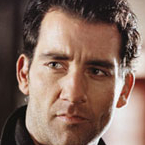ORIGINAL: loki100
So finished Ingrao Habsburg Monarchy 1618-1815 found it fascinating and really well written. its not really much of a military history book (the Seven Years War is disposed of in a couple of pages) but domestic and international politics are deftly handled (esp if like me you have pretty ropey background knowledge of the dynamics in Central and Eastern Europe at this period).
For the first time I actually understood what kicked off the Thirty Years War and how it fitted with wider power and religious conflicts. Also the way the Hapsburgs first embraced a mono-confessional state for the unity then ditched it as part of their sustained modernisation in the 18C.
The bit of his thesis I didn't buy was that the French Revolution set back the process of modernisation and democracy across Europe. His view is basically everyone was absorbing modern economics (cameralism and its variants), states were becoming more secular, justice less harsh then this thing happened that set it all back by linking those types of reforms to violent revolution.
Not convinced, but also the first time I've seen this argument made. Not sure if its a product of a political world view (if so Ingrao keeps his well hidden beyond a clear sympathy for the Hapsburgs) or a function of taking a central European perspective?
warspite1
Never heard this either. I guess it could make sense in so far as something like the revolution could make the establishments react in two ways:
- lets give some leeway to the prols - we don't want this happening here
- lets batten down the hatches to deter the prols - we don't want this happening here
To my mind the latter would be more likely.... but I have no examples to provide - just gut feel based on the way humans usually react to potentially revolting peasants [;)]











